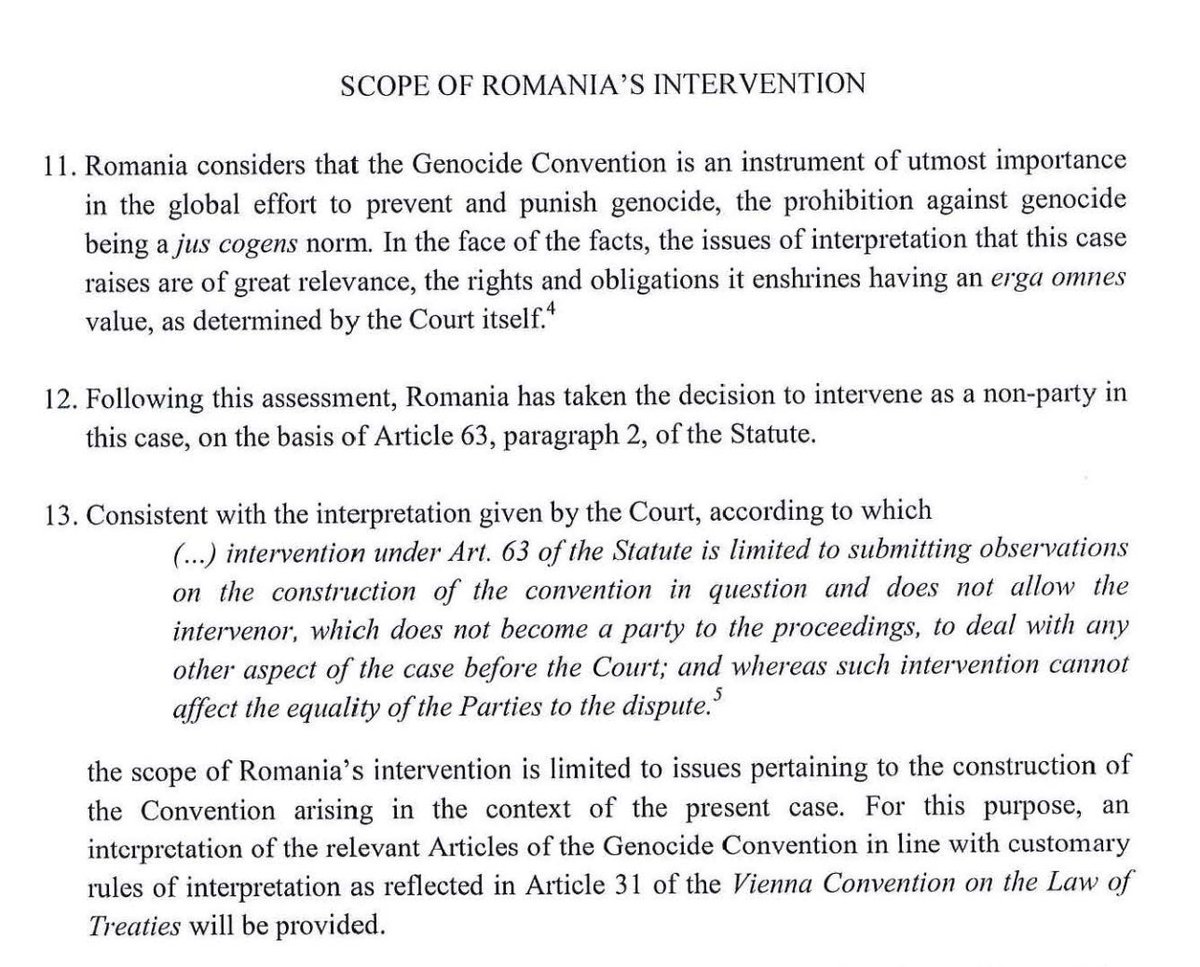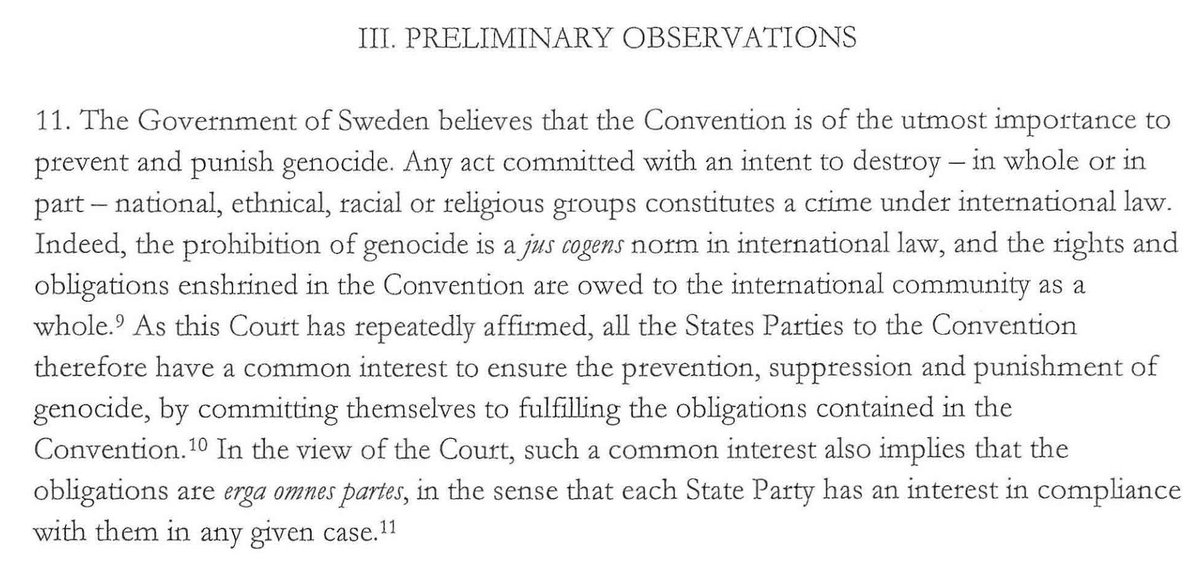Some quick observations on the #ICJ's two orders today in the respective #Armenia-#Azerbaijan cases. 🪡1/6
https://twitter.com/CIJ_ICJ/status/1628421355162017793
Probably most controversial finding in today's orders is the (thinly reasoned) finding that the interruption of movement along the Lachin Corridor plausibly constitutes violation of #Cerd.
J Yusuf's criticism of shoehorning disputes into Cerd compromissory clause worth a read. 2/


J Yusuf's criticism of shoehorning disputes into Cerd compromissory clause worth a read. 2/



Given the ICJ's finding in 2021 that Azerbaijan's claims relating landmines did not plausibly fall under the Cerd, little surprise that it rejected Azerbaijan's claims this time round. However, a few nuggets in the individual opinions... 3/ 



Judge ad hoc Keith rightly points out the pitfalls of reading too much into the language of the ICJ in its provisional measures orders, given the short time the Court has in preparing them. 4/ 

Also on the issue of language used in a provisional measures order, it seems more than mere coincidence that the two judges who did not participate in the Court's 2021 order in the case (rightly) implied that the Court could have been more precise therein. 5/ 

Last but not least, the headnotes accompanying Judge Sebutinde's separate opinion appear to be the first at the ICJ which refer to the individual judge in the third-person (but those accompanying Judge Yusuf's opinion do not...). A new style? Only time will tell! 🔮 6/END 



• • •
Missing some Tweet in this thread? You can try to
force a refresh
























